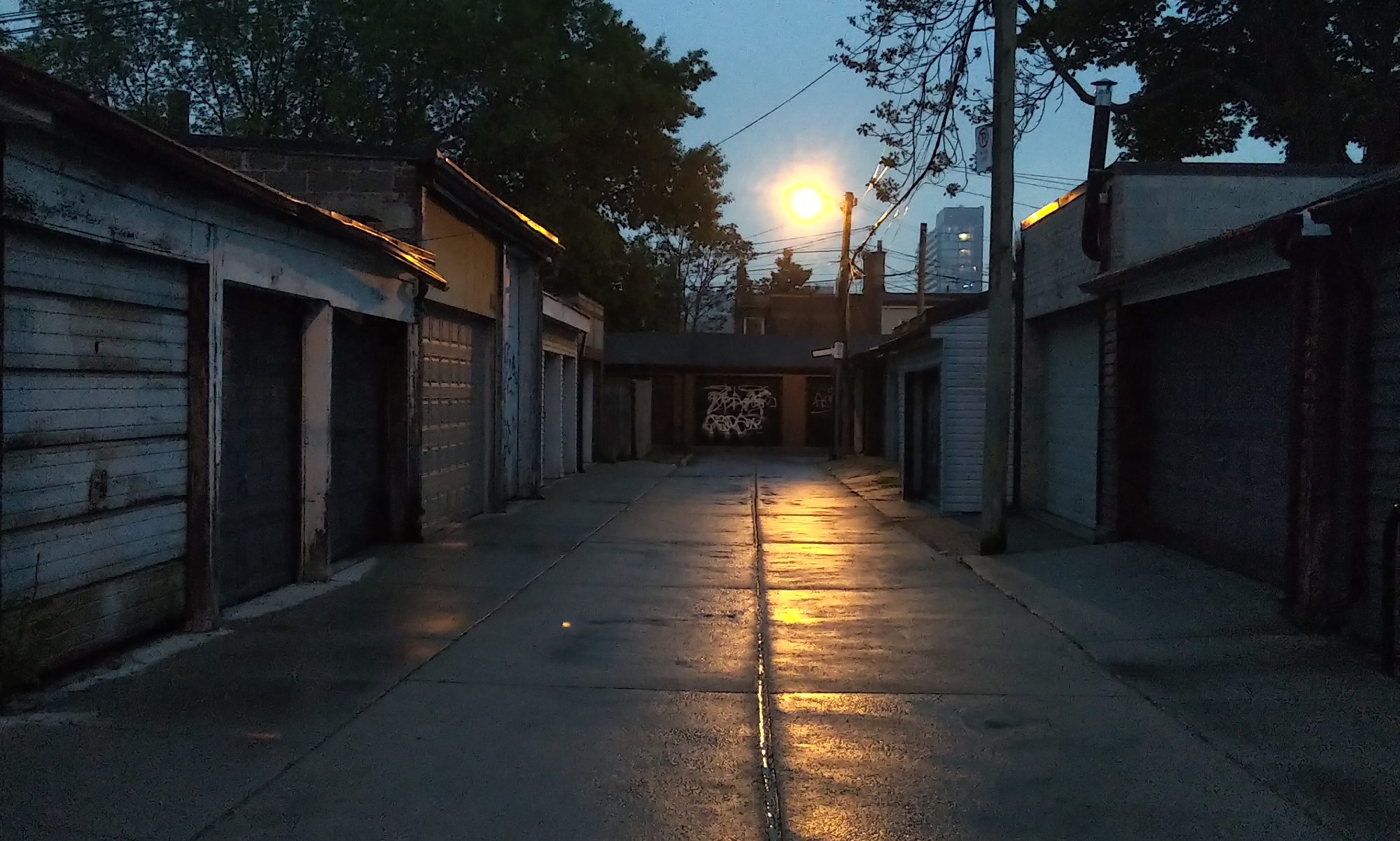My 85th post is to thank everyone for their feedback, comments, intermittent visits, and occasional votes of support.
The Steppenwolf Effect, pt.1: Synchronicity
As mentioned in my previous post, a couple of things occurred to me while I started reading Steppenwolf.
As mentioned in a previous previous post (here), I write fiction. I’ve written one novel and have since completed the rough draft of a second. When I started reading Steppenwolf I realised (at the point where Harry meets Hermine 1) that it shared a parallel storyline with my second novel.
I clearly remember starting to sweat, followed by some muffled swearing.
If there was anything that freaked me out at the time, it was the fear that I was going to open a book (whether it be a novel or a collection of short stories) to discover that something I’ve written had been, as they say, “done before”. In retrospect there isn’t much reason for this fear – unless one is directly influenced by something it would be a hell of a coincidence to write something that was so similar to a previously published work that you should have to worry – particularly if it’s something as complex and individualistic as a novel.
But I was concerned; I thought to myself: F*!king bastard Hermann Hesse and his f$~king storylines. But I digress…
I turned to my writing group 2. I asked them: has anyone opened a book to discover some freak-assed psychic parallel to something you’re currently working on? The answer, surprisingly, was yes – all the time, in fact. Synchronicity happens more often than we think, as it turns out.
Thinking about it, it makes sense; assuming we aren’t forced to read the books that we do (as in school) we end up reading those works which appeal to us – as readers and perhaps subconsciously as writers also. So it should come as no surprise to find narratives, plots, or characters that ring familiar.
1. Harry & Hermine sounds like the name of a Hollywood adaptation.
2. I’m blessed to have such a good writer’s group – most of us were students of DM Thomas at the Humber College School for Writers.
Blogger Update

Blogger, the blogging portal through which this site exists, has upgraded to a new version. I’ve been reticent to switch, particularly as it has been interminably stuck in a Beta stage (“beta” being the latest buzzword for “it doesn’t work but because we’re a publicly traded company we need to produce output for the sake of keeping the price of our shares consistent”). However, apparently, it’s out of Beta so I will be switching to it today.
What scares me is that the template – those bits of code which I’ve been polishing like gemstones for the last year – will require upgrading. I don’t have as much time to polish as I used to, so I hope the changes aren’t too heinous (let alone the hope that my site simply doesn’t break in half).
In any case, here it goes…
P.S. Coming Up: book reviews!
Update (05/01/07): the switch wasn’t too bad, but now that bloody Blogger Nav-Bar is at the top again. Bastards.
To want to be alive
You have to lose
You have to learn how to die
if you want to want to be alive
– Wilco, “War on War“
I had this song going through my head all weekend, the last weekend of my vacation (and sorry for the lack of updates recently). It’s probably one of the best songs I’ve heard in such a very long time. Like Guided By Voices’ “Game of Pricks” and Roxy Music’s “Mother of Pearl“, it’s one of those tracks that I have to listen to again and again and again because somewhere in it is a phenomenal beauty that is as elusive as it is sublime.
It’s uplifting but with a hurt core – the capitulation that “you have to learn how to die if you […] want to be alive”. I’ve been coming to terms with this theme over the last while, admittedly transposing it onto something it probably was never intended to be 1.
After four-and-a-half years, I gave notice today that I was leaving my full-time job. Steady pay, benefits, desk – gone, so that I can work as a freelancer.
Without going into sordid detail, I felt the need/want/desire to leave, but for the longest time I was paralyzed with fear about going freelance. This in spite of the fact I often came home despondant…that it was harder to write/revise my fiction when the best chunk of the day was spent in a chaotic environment…that with every passing week I felt I was missing out on a different yet possible life.
I don’t believe there is any more effective way to conquer a fear than doing so knowing that failure is also a possibility. You have to float on a raft to get over your fear of water. The chance of failure must be present, otherwise all you can achieve is a virtual success – in which case you might as well play a video game simulation of it rather than tackle the real thing. Playing blackjack against a computer will allow you to learn about the rules of blackjack (and probability mathematics) – it will not prepare you at all for a table full of experienced players in Vegas staring at you like a idiot because you’ve never had to deal with intimidation.
In other words, you must be prepared for the chance that, no, things may not go well. That is, after all, the way life works: at the dawn of time mankind signed no such contract which promised we would die unbruised. So, if an amount failure is inevitable (whether it be due to chance or fault) the best you can do is inform yourself as much as possible before taking any big leaps. The rest is going to happen whether you intended it to happen or not.
I needed more flexibility in my life. More freedom to do what I want without collaborating with a single entity that could never realistically put my needs before its own. Now the responsibility is mine: I can’t blame anyone anymore if things don’t pan out. However, I can tell you, in facing the unknown there is something very, very liberating.
1. I think it’s wrong for there to be a finite explanation of what any song “means”, however I also feel protective of songs whose themes are misconstrued/manipulated by others.
Forging on (he says)
It’s difficult to maintain a positive perspective when it seems you are book-ended by sirens of madness on one side and the encroachment of useless bullshit on the other. It makes one consider the benefits of a solitary agrarian lifestyle; unfortunately, that’s not in the cards for me. Firstly, most solitary agrarians are often too invested in their solitude (and their agrarianism) to even stop and contemplate their identity – after all, occupational lifestyles such as “solitary agrarian” tend to come naturally to people. I admit I may have missed that boat. Secondly, I simply wouldn’t trust anyone who identified him/herself as a solitary agrarian (“Take the chip off your shoulder, hippy.” my inner pub-crawling bully yells out – let’s call him Sully. Truth be known, he yells a lot).
It’s hard being an artist 1 when you’re surrounded by a stream of people who also call themselves artists, not necessarily because they are or that what they do is particularly outstanding, but rather because it doesn’t make your situation any easier. When you were a kid, an Artist was some sort of hallowed currency – you imagined they were raised on Easter Island by alpacas and shipped to the New World via hovercraft.2 Well, they’re not. I suppose it’s good that they’re not, as I’m sure someone would’ve raped and pillaged them long, long ago, Viking-like. To that end, I’m thankful the world doesn’t have to contend with a breed of sullen warrior sub-artists from Easter Island.
In the inner universe of the artist, “I” is the loneliest word. But let’s come back to this.
On the extreme opposite of the universe, far, far away from the tiny satellite of “I” is “you”.3 You, as in, not-the-artist. Sure, you could be “an artist” also, but it really doesn’t matter. For all you know, they’re nothing like you…or I, sorry. Bloody pronouns.
Right, let’s come back to “I”. Lonely word blah blah blah. Rudolf Steiner saw no difference between Art, Religion, and Science. In his eyes, they all dealt with the same conflict 4: bridging the chasm of understanding between the I and the not-I. Let’s face it – everything around us is not us, and yet it is, and yet it’s not. I have no relationship to the CBC Visitor sticker that I have stuck to the wall in front of me – it is, after all, a piece of sticky paper. Yet, it’s an encapsulation of one of various meetings/sessions I’ve had at the broadcaster, which is tied to what I do for a living, which is somehow (sometimes depressingly) tied to who I am. There is a constant conflict between the inner and outer world and it is the job of the Artist, the Philosopher, and the Scientist to ask fundamental questions in order to better define this relationship. I suppose I could’ve picked a better example than a sticker, yes (Sully laughs in the background, a pint of Guinness in his hand, leaning back on his barstool, smoking a cigarette as only fictitious inner pub-crawling bullies can do in light of Toronto’s recent smoking by-laws).
Every artist has to realise that they are, ultimately, alone. You can be part of a collective, you can have a gaggle of supporters, you can own an over-priced bar named Camera, but in the end it’s your inner voice that expresses itself and not the sum of your distractions, be they good or bad. The environment – the “not I” – can inspire art, but it doesn’t create art in and of itself. At best, in the Artist’s World, the “not I” is a muse that we toy with, fight against, woo, or plunder jealously for material. But in the end, you’re on your own.
I’m an unpublished writer (when I withdraw various insubstantial exploits: a College Street community newspaper that never got past Issue #1/Volume #1, a poem I wrote in high school that was somehow allowed in the Burlington Post, and various letters to the Globe and Mail), yet despite that, I’m not unaccomplished. This is the fine line: knowing the difference between a lack of commercial success and a lack of personal accomplishment. We tend to equate the two as synonymous, yet one is inherently more substantial than the other. I look back at the last five or six years and I say to myself (“Self…”) that I’ve accomplished a lot (a novel, numerous short stories, countless poetry) – it’s only been in the last year that I’ve begun to seriously aim for commercial success. I would rather be in this situation now than have peaked early (when I knew less about myself as a person and a writer) and withered, as most early-peakers do. Success is not a race, or at least that’s what I tell myself when I feel I’m going nowhere.
The key is to forge on, and whether that requires optimism, humour, or even distilled anger is up to the individual. The common-sensical answer would be: whatever it takes.5
As for me today, I might just join Sully for a pint.
Footnotes:
1. I use the term “artist” in its general context. I do not specifically mean visual artists, although they are obviously part of the category. I just can’t speak for them.
2. Hovercrafts. What kind of brilliant magic was that? Weren’t they the coolest things ever made by mankind when you were a kid? Christ, give me a place with hovercrafts and moving sidewalks and I’m buying real estate.
3. This is assuming a finite universe which could contain opposite sides (which obviously wouldn’t be possible if there was no end or beginning).
4. Conflict is, in retrospect, a slightly dramatic term – but I’m a slightly dramatic person.
5. The artistic process is just as important as the artistic product; it would be dangerous to focus on one to the exclusion of the other – you’d either be left with a industrious stream of mediocrity or constipated with directionless obsession. And you thought artists had it easy.
Remembering Michael Cahill
I don’t normally talk about “me”, because there are more than enough blogs out there that do a much better job at that sort of thing. However, it would be strange if I didn’t post an excerpt from an article that was published today in the Austin American-Statesman by Denise Gamino. It concerns the murder of my uncle in 1979, which has since gone into the territory of unsolved or ‘cold’ cases.
—
Link: A calendar book, a guitar and a very cold case
Excerpt:
Michael Cahill chased his musical dream down the street, around his apartment and through the backyard.
It was the last thing he ever did.
Seconds later, he was shot to death in his driveway, a single bullet through the middle of his forehead.
Cahill was running after his beloved guitar. It disappeared into the darkness in the hands of the very odd burglar whom Cahill startled, and then raced after.
Mike Cahill died in Austin on April 13, 1979.
He was 28.
His murder is still unsolved.
His guitar is still missing.
And his family and friends still mourn a young troubadour whose poetic recordings are preserved on an obscure album pressed posthumously by friends as a memorial.
Cahill’s murder case has been cold now for 27 years, almost as many years as he lived.
It is an old Austin murder forgotten by most. Perhaps it seemed nothing more than an unfortunate, random killing of a University of Texas dropout in love with making music back when Austin overflowed with career-free hippie types marching to their own casual rhythms.
But those touched by the inexplicable killing in the Bouldin Creek neighborhood of South Austin think of it differently.
To them, it will always be the haunting “Book of Days” murder.
—
It’s not my intention (or preference) to speak about family or personal matters here, but Michael’s story deserves attention. This is the least that I can do for him and his memory.
#####
UPDATE (April 2020): http://imagitude.com/michael-cahill/michael-cahill-coda/




